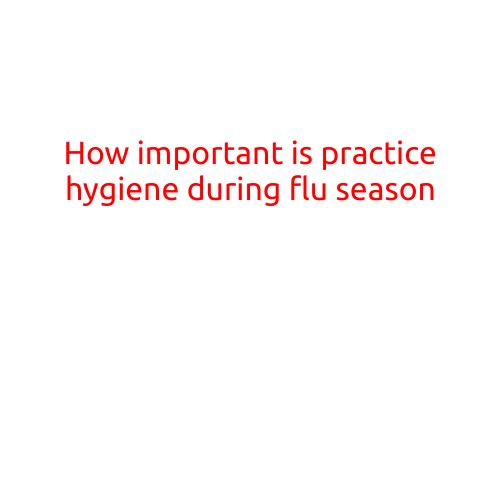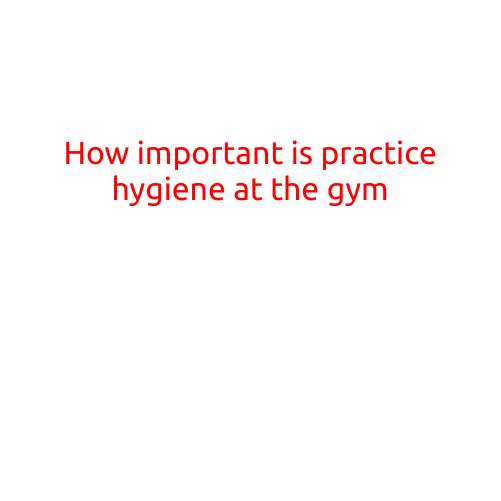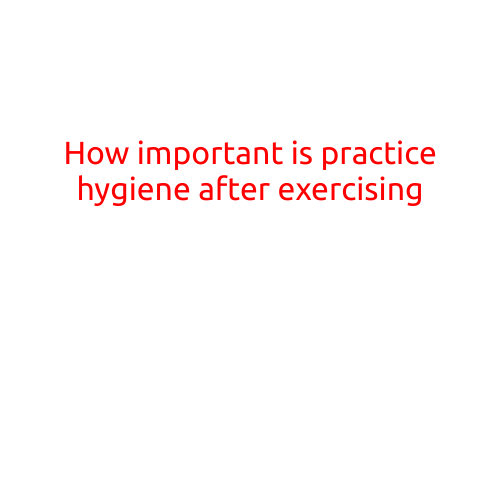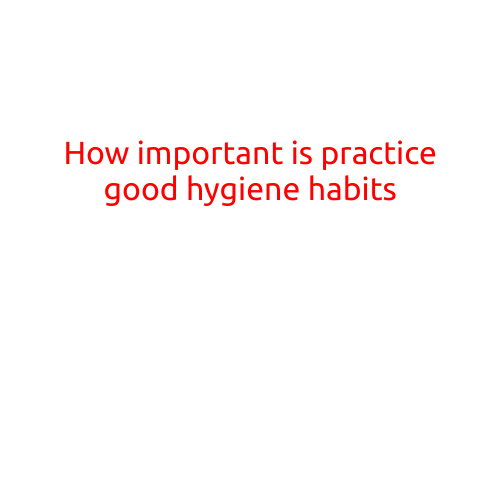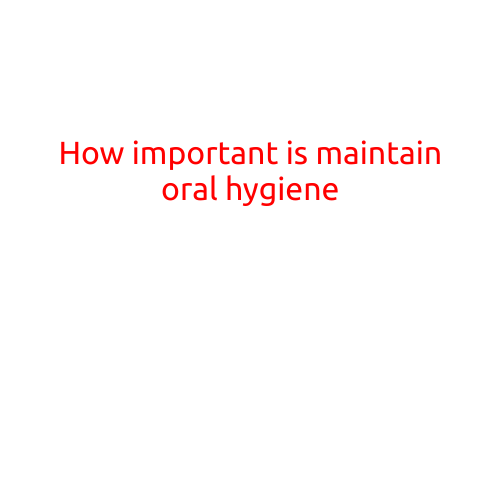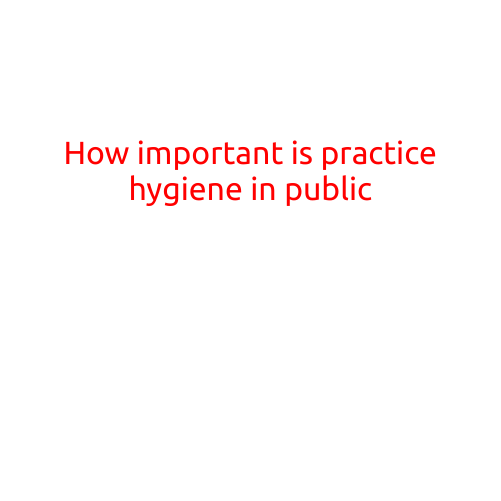
How Important is Practicing Hygiene in Public?
In today’s world, it’s easier than ever to come into contact with germs and bacteria that can make us sick. With the rising cases of infectious diseases and the increasing urbanization, it’s more crucial than ever to prioritize practicing hygiene in public. In this article, we’ll discuss the importance of hygiene in public and provide tips on how to maintain a healthy lifestyle.
Why is hand hygiene so important?
Hand hygiene is one of the most effective ways to prevent the spread of illnesses. According to the World Health Organization (WHO), handwashing is the most important step in preventing the spread of infections. When we touch surfaces, shake hands, or touch our faces, we can transfer bacteria and viruses to our hands. If we don’t wash our hands properly, these microorganisms can transfer to our eyes, nose, mouth, and other parts of our body, leading to infection.
The consequences of poor hygiene
Poor hygiene in public can have serious consequences. Some of the common illnesses caused by poor hygiene include:
- Respiratory infections: The common cold, flu, and pneumonia are all caused by viral and bacterial infections that can spread through contaminated surfaces.
- Skin infections: Impetigo, ringworm, and other skin infections can spread through contact with contaminated surfaces and lack of proper hygiene.
- Gastrointestinal infections: Food poisoning, hepatitis, and other infections can spread through contaminated food and water.
- Eye infections: Conjunctivitis and other eye infections can spread through contact with contaminated surfaces and lack of proper hygiene.
Tips for practicing hygiene in public
So, how can you practice good hygiene in public? Here are some simple tips:
- Wash your hands frequently: Wash your hands with soap and water for at least 20 seconds, especially after using public restrooms, before eating, and after blowing your nose, coughing or sneezing.
- Use hand sanitizer: When soap and water are not available, use hand sanitizer that contains at least 60% alcohol.
- Carry a hand sanitizer: Keep a small hand sanitizer in your bag or pocket to use when you’re on-the-go.
- Avoid touching your face: Try to avoid touching your eyes, nose, and mouth as much as possible to prevent the spread of germs.
- Practice proper cough and sneeze etiquette: Cover your mouth and nose with a tissue or your elbow when you cough or sneeze.
- Clean and disinfect surfaces: Regularly clean and disinfect high-touch surfaces such as doorknobs, light switches, and countertops.
- Wear a mask: If you’re sick or around someone who is sick, wear a mask to prevent the spread of germs.
- Practice proper food hygiene: Wash your hands before handling food, avoid cross-contamination, and cook food to the recommended internal temperature.
Conclusion
Practicing hygiene in public is crucial to preventing the spread of illnesses. By following these simple tips, you can significantly reduce your risk of getting sick and prevent the spread of germs to others. Remember, hygiene is everyone’s responsibility, and by taking small steps, we can create a healthier and safer community for ourselves and others. So, the next time you’re out in public, remember to practice good hygiene and do your part in keeping yourself and others healthy.
